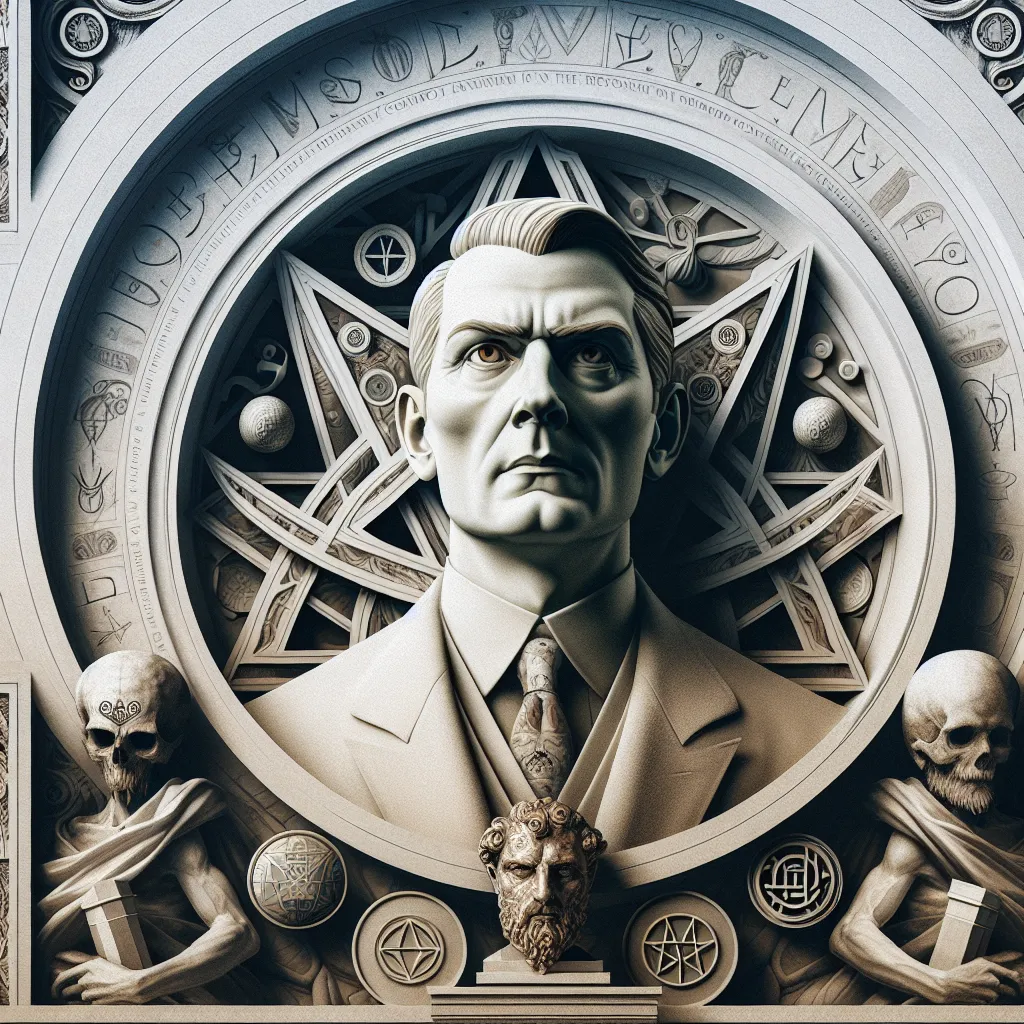
- Published on
- Authors

- Name
- You
Aleister Crowleys Legacy in Contemporary Occultism
Aleister Crowley, a name that evokes curiosity, fascination, and sometimes fear, remains a cornerstone of modern occultism. Widely regarded as one of the most influential esoteric thinkers of the 20th century, Crowleys contributions have left an indelible mark on various aspects of occult practices and philosophies. This article aims to analyze his enduring legacy within contemporary occultism, exploring how his teachings have been interpreted and adapted to fit modern sensibilities.
Early Life and Formation of Thelema
Aleister Crowley was born Edward Alexander Crowley on October 12, 1875, in Leamington Spa, England. From a young age, Crowley was drawn to mysticism and the occult, a pursuit that would shape his life's path. In 1904, Crowley founded the religious philosophy of Thelema, encapsulating its core tenet with the phrase "Do what thou wilt shall be the whole of the Law."
The Pillars of Crowleys Teachings
Crowleys work encompasses a broad spectrum of occult and esoteric knowledge, encompassing ceremonial magick, mystical experiences, and philosophical inquiries. Key points include:
- Book of the Law (Liber AL vel Legis): The central sacred text of Thelema, which Crowley claimed to have received from a non-human entity named Aiwass.
- Magick and Rituals: Crowley systematically categorized various forms of magick and ritual, including the symbolic and psychological aspects.
- Mysticism and Yoga: He delved deeply into Eastern philosophies, merging them with Western esoteric traditions.
Contemporary Interpretations
Crowleys teachings have been revisited and reinterpreted through various lenses, including psychological, sociopolitical, and even technological perspectives. Let's break down some key areas of modern interpretations:
Psychological and Jungian Analysis
Many contemporary occultists view Crowleys work through a psychological lens, particularly using Carl Jungs theories of the subconscious and archetypes. Crowleys invocation ceremonies and rituals often function as a way to dialogue with different aspects of the psyche, akin to Jungian active imagination.
Sociopolitical Impact
Crowleys counter-cultural stance has naturally influenced various socio-political movements, including the 1960s counterculture and the modern New Age movement. His emphasis on individualism and personal freedom resonates with many contemporary spiritual seekers.
Technomancy and Digital Age Adaptations
In today's digital age, Crowleys work finds relevance in cyber-rituals and technomancy practices. Online communities engage in Crowleyan rituals via virtual spaces, adapting traditional ceremonies to the digital landscape.
Adapting Rituals and Ceremonies
Crowleys complex ceremonial practices have undergone significant adaptations to cater to modern seekers who may lack access to the elaborate settings he prescribed. Simplified versions of his rituals are being practiced widely, ensuring greater accessibility without losing the core essence.
Table: Commonly Adapted Crowleyan Practices
| Traditional Practice | Modern Adaptation | Description |
|---|---|---|
| The Lesser Banishing Ritual of the Pentagram (LBRP) | Simplified LBRP | Shortened and adapted for personal use, often done in the privacy of one's home. |
| The Gnostic Mass | Online Gnostic Mass | Performed via online video conferencing platforms, allowing global participation. |
| Tarot Divination | Digital Tarot Apps | Crowleys Thoth Tarot deck is available in app form, making it accessible to tech-savvy practitioners. |
Conclusion
Aleister Crowleys influence on contemporary occultism is profound and multifaceted. His teachings have not only withstood the test of time but have also evolved, finding new life in modern interpretations and adaptations. From psychological insights to digital rituals, Crowleys legacy continues to inspire, challenge, and transform those who dare to explore the depths of occult wisdom.
"Love is the law, love under will." - Aleister Crowley
By delving into his teachings and adapting them to fit our contemporary context, seekers can uncover timeless truths that transcend the boundaries of conventional wisdom.
Note: This article serves as an overview and introduction to the complex and multi-layered legacy of Aleister Crowley. Readers are encouraged to explore Crowleys own writings and contemporary analyses for a deeper understanding.
